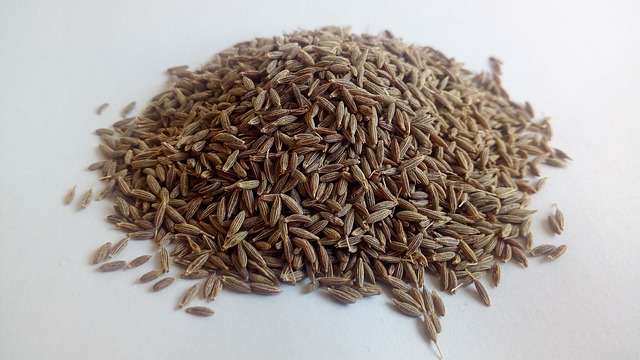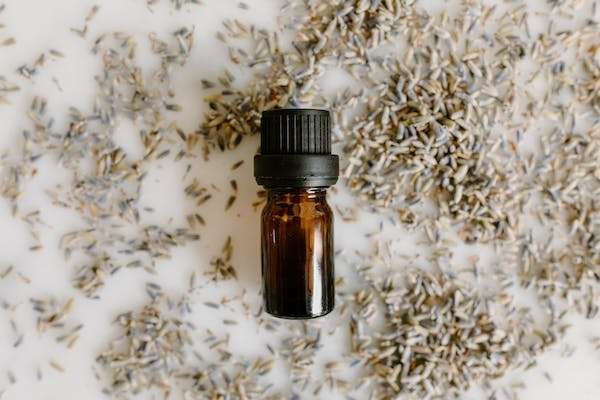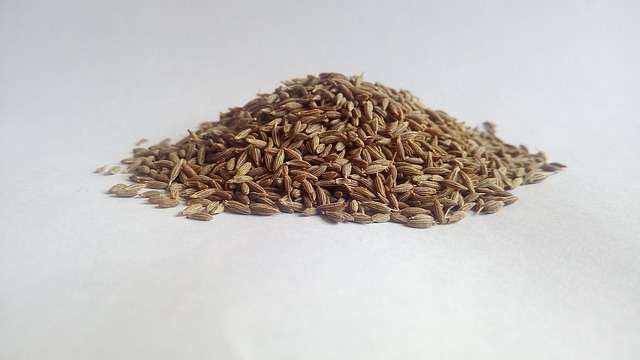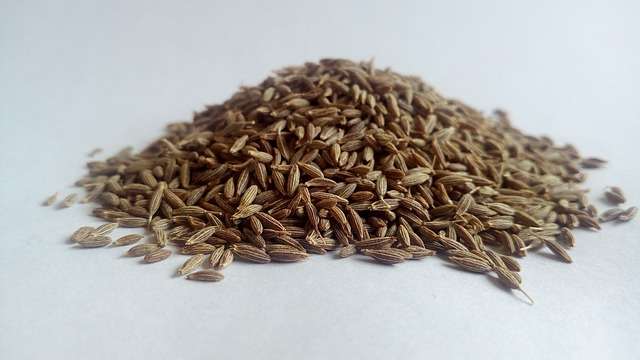Introduction:
Cumin seeds, or Cuminum cyminum as they are officially termed, are tiny, fragrant seeds that have long been treasured for their distinctive flavor and myriad nutrition facts of cumin seeds and their health advantages. These seeds come from the Mediterranean region and are widely used in international cuisine.

Cumin is a common spice in a variety of savory meals because of its warm, earthy, and slightly nutty flavor. Cumin seeds are popular not only for their flavor but also for their amazing nutritional value, which can support a balanced diet.
We’ll clarify the nutritional information and go over the many reasons why cumin deserves a spot in your cuisine in this blog post.
Nutrition Facts of Cumin Seeds:
The body needs a variety of micronutrients, which are minor amounts of vital minerals and vitamins, for a variety of basic activities.
Cumin seeds are a great source of these nutrients. Cumin contains several micronutrients, including in the nutrition facts of cumin seeds:
Vitamin A
The vitamin A found in modest amounts in cumin is necessary for good vision, immunity, and skin. Although cumin is not a key source of vitamin A, every component helps you get the recommended daily amount.
Vitamin C
Moderate amounts of vitamin C, an antioxidant that helps the body absorb iron from plant-based sources and maintains healthy skin, are present in cumin. It contributes to the synthesis of collagen and the healing of wounds.

Iron
Iron, a mineral necessary for the production of hemoglobin in red blood cells, is particularly abundant in cumin seeds. All cells in the body obtain the oxygen they require to function correctly because hemoglobin transports oxygen throughout the body.
A sufficient intake of iron promotes overall energy levels and prevents iron deficiency anemia.
Magnesium
Cumin is a good source of magnesium, which is necessary for maintaining healthy bones, muscles, and nerves as well as for controlling blood pressure. Magnesium helps the body produce energy and supports a number of biochemical processes.
Calcium
Cumin seeds include calcium, which is necessary for healthy bones and teeth, although not as abundant as calcium is in dairy products. Additionally, it affects neuronal transmission, blood coagulation, and muscle contraction.

Health Benefits of Cumin Seeds:
Due to its nutrition facts of cumin seeds and organic components, cumin may provide a number of health advantages. Here are five advantages of utilizing cumin for health:
1. Better Digestion
For centuries, cumin has been utilized to help the digestive system. In addition to aiding more effective digestion and easing the symptoms of indigestion, bloating, and gas, they contain substances that can increase the synthesis of digestive enzymes.
Additionally, cumin seeds can ease minor gastrointestinal discomfort.
2. Weight Control
Cumin can aid in weight loss and control. According to certain research, cumin can boost metabolism and lower body fat. Additionally, when added to meals, their high fiber content might boost feelings of fullness and lower overall calorie intake.
3. Antioxidant Properties
Flavonoids and polyphenols, among other antioxidants, are abundant in cumin seeds. These anti-oxidants aid in the body’s battle against oxidative stress and inflammation, possibly lowering the risk of chronic illnesses and promoting general health.

4. Blood Sugar Regulation:
According to a preliminary study, cumin may assist in controlling blood sugar levels. According to some studies, they can enhance insulin sensitivity, which is advantageous for persons who have type 2 diabetes or are at risk for developing it.
5. Support for the Immune System:
Cumin contains vitamins and minerals like iron and vitamin C that are necessary for a strong immune system. In particular, vitamin C helps support immune system health and illness prevention.
How to incorporate apples into your diet:

It’s simple to incorporate cumin into your diet, and it gives dishes a distinctive flavor and nutritious boost. Here are a few ways to include cumin in your recipes:
Toast and grind
In a dry pan, roast the cumin seeds until their aroma is released and they start to turn a light brown color. Afterward, powder them using a mortar and pestle or a spice grinder. Spice up your recipes with this cumin powder.
Season soups and stews
To add a warm, earthy taste to soups, stews, and chili, add whole or ground cumin. They go nicely with foods like tomatoes, beans, and lentils.
Curry and gravies
Cumin is a key ingredient in many Middle Eastern and Indian recipes. To improve the flavor of curries, gravies, and chutneys, add cumin or cumin powder.
Rice and Grain Dishes
To give rice, quinoa, or other grain dishes a pleasing aroma, sprinkle cumin over them. This is a custom found in plenty of different cuisines.
Roasted Vegetables
Before roasting in the oven, toss vegetables like carrots, potatoes, or cabbage with a mixture of cumin, olive oil, salt, and pepper. A beautiful flavor will be provided by cumin.
FAQs:
1. Are caraway seeds the same as cumin seeds?
They are not the same, no. Although the flavors of cumin and caraway seeds are similar, they are not the same.
2. Can cumin improve digestion?
Yes, the benefits of cumin for digestion are well established. Digestion can benefit from their ability to boost the production of digestive enzymes.
3. Does cumin contain a lot of iron?
Yes, cumin has a lot of iron. Per 100 grams, they have 66 milligrams of iron.
4. How can I keep cumin fresh by storing it?
Store cumin seeds in an airtight container away from direct sunlight in a cold, dry location.
5. Does consuming cumin have any negative effects?
When used as a cooking spice in moderation, cumin is mostly harmless.
Conclusion:
Last but not least, cumin is a versatile spice that not only gives food a rich, earthy flavor but also has a variety of possible health advantages. Essential vitamins, minerals like iron and magnesium, and antioxidants are all part of its nutritional composition.
Consuming cumin regularly can improve your immune system, support weight loss, support digestion, give antioxidants, and help control blood sugar.
